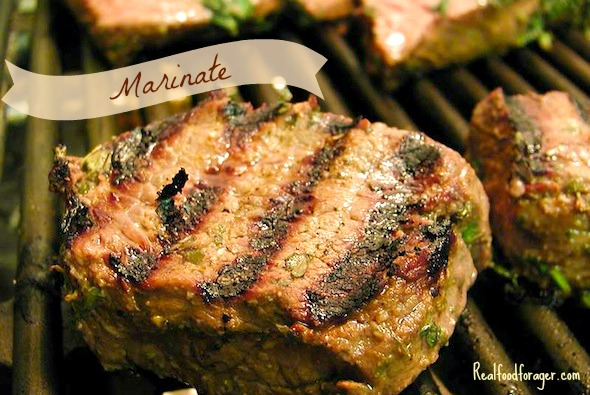This time of year many people pull out their grill and enjoy the flavorful meats that result from grilling. Some folks are hesitant to grill because of the cancer producing chemicals that form when high heat and animal protein and fat combine. There is a way to offset these dangerous chemicals that not only protects the food, but adds flavor and moisture as well.
HCAs and PAHs
Meats that are cooked over an open flame or over hot coals or a gas grill can potentially house carcinogenic substances. The high heat converts the amino acids in the meat into toxic compounds known as heterocyclic amines (HCAs). The high heat can also damage the fat in the meat and produce polycyclic aromatic hydrocarbons (PAHs). When juices fall onto the coals or the heating elements, smoke and flame may result and this surrounds the meat and creates these changes.
There is evidence that HCAs and PAHs may damage DNA and cause cancer. A diet high in HCAs has been linked to an increased risk of breast, colon, liver, skin, lung, prostate and other cancers, according to the National Cancer Institute (NCI).
How To Protect the Meat?
You can protect the meat by simply using marinades that are high in anti-oxidants. Add herbs, spices, and other agents that are high in antioxidants to your marinades and you will add a layer of safety to your grilling. Some of these spices include, garlic, ginger, sage, rosemary, thyme, and red chili pepper.
This study published in the Journal of Food Science found that using spicy marinades decreased the amounts of HCAs by up to 88%. They tested a base marinade made with oil, water and vinegar plus various spices — Caribbean, Herb and Southwest. The Caribbean seemed to work best in lowering the HCA content after grilling.
They also found that the HCA content was significantly decreased with just the basic marinade without any spices.
In this study published in the journal Carcinogenisis, rosemary was found to function as an antioxidant and anticarcinogen, due to a substance called Carnosol. This is a naturally occurring phytopolyphenol found in rosemary.












